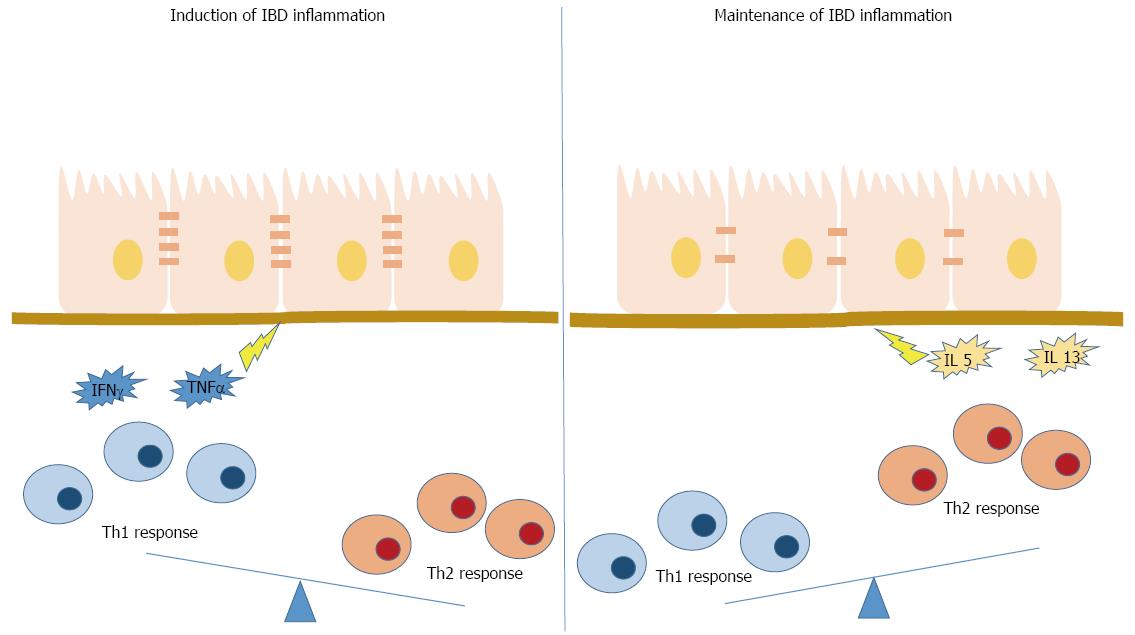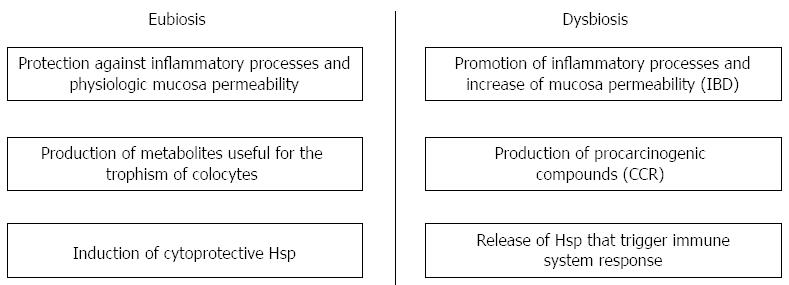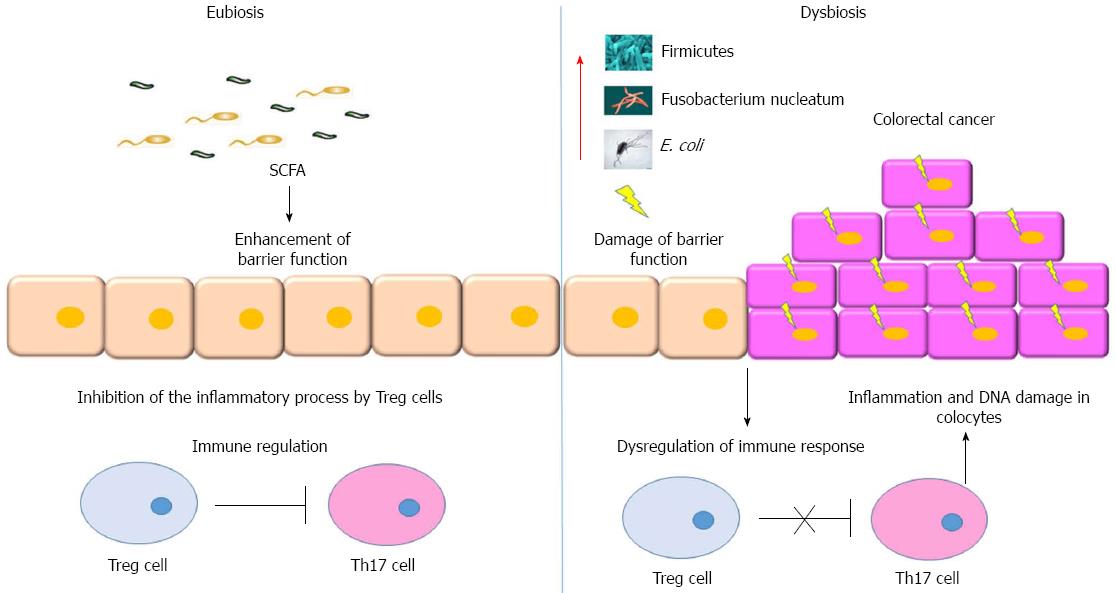Copyright
©2014 Baishideng Publishing Group Inc.
World J Gastroenterol. Dec 28, 2014; 20(48): 18121-18130
Published online Dec 28, 2014. doi: 10.3748/wjg.v20.i48.18121
Published online Dec 28, 2014. doi: 10.3748/wjg.v20.i48.18121
Figure 1 One hypothesis on the initiation of the inflammatory process in inflammatory bowel disease bases on an abnormal Th1 response mediated by the secretion of interferon gamma and tumor necrosis factor-α while the chronic inflammation is supported by interleukin-5 and interleukin-13 secreted by Th2 cells.
IFN: Interferon; TNF: Tumor necrosis factor; IL: Interleukin; IBD: Inflammatory bowel disease.
Figure 2 Eubiosis and dysbiosis exert different biochemical effects in the context of colocytes pathophysiology.
IBD: Inflammatory bowel disease.
Figure 3 At eubiosis stage, the intestinal epithelium hosts a rich and equilibrated microbiota that promotes the barrier function.
Microbial dysbiosis favors the production of genotoxins and metabolites associated with carcinogenesis. Moreover dysbiosis induces dysregulation of immune responses that cause inflammation promotion of carcinogenesis. SCFA: Small-chain fatty acids; E. coli: Escherichia coli.
- Citation: Tomasello G, Tralongo P, Damiani P, Sinagra E, Trapani BD, Zeenny MN, Hussein IH, Jurjus A, Leone A. Dismicrobism in inflammatory bowel disease and colorectal cancer: Changes in response of colocytes. World J Gastroenterol 2014; 20(48): 18121-18130
- URL: https://www.wjgnet.com/1007-9327/full/v20/i48/18121.htm
- DOI: https://dx.doi.org/10.3748/wjg.v20.i48.18121











